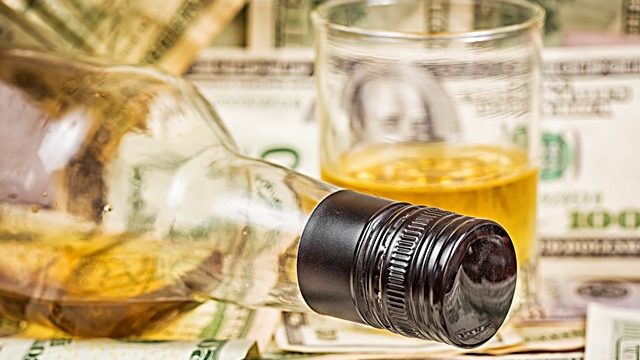Liquor licenses in New Mexico definitely top-shelf

THROUGH THE ROOF: Critics say a quota system on liquor licenses in New Mexico has hurt small businesses who cannot afford the prices.
By Rob Nikolewski │New Mexico Watchdog
SANTA FE, N.M. – Restaurant owner Raul Aboytez would love to serve margaritas at Jalapeño’s, the Mexican grill he and his wife, Janet, own just steps from the state Capitol.
The high cost of a full liquor license in New Mexico makes it a financial impossibility.
“I’m not very happy with the rules they have here for everything,” Aboytez said during a break between the lunch and dinner crowds. “I think a full liquor license is going for $400,000 right now.”
Try close to a million bucks in some cases.
Two retail liquor licenses for package sales went for $975,000 each in Rio Rancho last year. A dispenser license for the Guadalupe Café, just down the street from Aboytez, went for $600,000, according to state records.
“It’s tough to get a full liquor license here,” Aboytez said.
That’s because New Mexico apportions liquor licenses through a quota system. Just 1,411 licenses are available, based on a law established in the 1930s, after Prohibition, that limited licenses to one for every 2,000 people.
In 1981, licenses to sell just beer and wine were added, but that hasn’t curbed the demand to sell booze. Some business owners who can’t afford to pay a few hundred thousand dollars to buy a license outright often go to brokers to lease an existing license. Aboytez said the going rate was $4,000 per month.
By comparison, the costs for liquor licenses in neighboring states, such as Colorado and Texas, cost less than $2,500.
Critics complain the high cost of licenses affects other businesses, as well.
“It’s hurting entrepreneurship and it’s hurting the arts because you just can’t have performing arts without alcohol,” said Shannon Murphy, who helps run the After Hours Alliance, a group in Santa Fe that promotes nightlife events for artists and musicians. “It’s not the rule we made up, but it’s the rule we have to live by.”
Paul Gessing, president of the Rio Grande Foundation, a free-market think tank based in Albuquerque, says New Mexico’s quota system creates artificial scarcity.
“It creates a cartel run by those who can afford to invest outrageous sums in liquor licenses,” he wrote on his website. “Current law, therefore, penalizes small businesspeople and their potential employees.”
Talk of reforming the system has percolated for years, but the financial environment created by the quota system is an impediment. After all, what about the bar owners, retailers and restauranteurs who have already paid hundreds of thousands of dollars to buy a full liquor license?
It’s not fair to devalue existing licenses that have already appreciated, said J.R. Palermo, general manager at Tiny’s Restaurant and Lounge in Santa Fe, a longstanding nightclub.
In 2013, state Sen. Ron Griggs, R-Alamogordo, introduced legislation aimed at overhauling the state’s Liquor Control Act. Among other items, the bill called for establishing a food service liquor license at $75,000 and a limited retailer’s license at $250,000. The plan died in committee.
“There needs to be a means for mom-and-pop restaurants to be competitive,” Griggs told New Mexico Watchdog. “They can get a beer and wine license, but if someone wants margaritas or mixed drinks they’ll probably go to a Chili’s or an Applebee’s … they’re more likely to have deeper pockets.”
A legislative task force was formed to look into practical solutions. The task force, which includes business owners, is led by the Regulation and Licensing Department.
Aboytez has opted for a beer and wine license, which he says cost about $4,000 by the time he paid all the sundry fees. Aboytez said it took four months to approve the paperwork while his business barely hung on after opening last summer.
“We almost went out of business because every single person who comes here, they want a beer or a glass of wine,” Aboytez said.
Palermo says the problem goes beyond just the cost of liquor licenses.
“I think the system in New Mexico is prohibitive. We’re overtaxed,” he said. “The way the system is, it’s hard to conduct business already. I’m getting killed on the GRT (gross receipts tax). I’m getting killed by the minimum wage in Santa Fe (one of the highest in the country at $10.65 an hour). I’m getting killed by the cost of insurance. And then there’s the excise tax for liquor and city licensing and state licensing. Those are five variables I have no control over. I feel I’m working for the government more than I’ve ever felt.”
Contact Rob Nikolewski at rnikolewski@watchdog.org and follow him on Twitter @robnikolewski







